Peter Lynch Rules
TRADING & INVESTING

Your investor’s edge is not something you get from Wall Street experts. It’s something you already have.

In this business, if you’re good, you’re right six times out of ten. You’re never going to be right nine times out of ten.
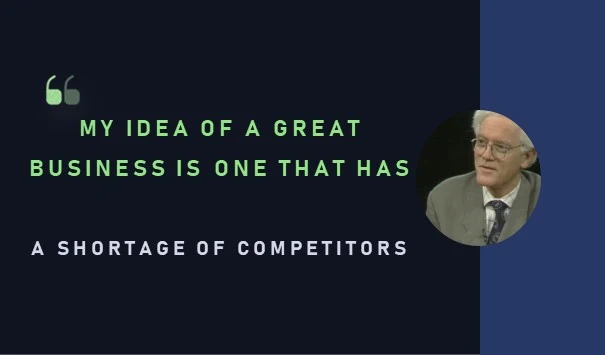
My idea of a great business is one that has a shortage of competitors.
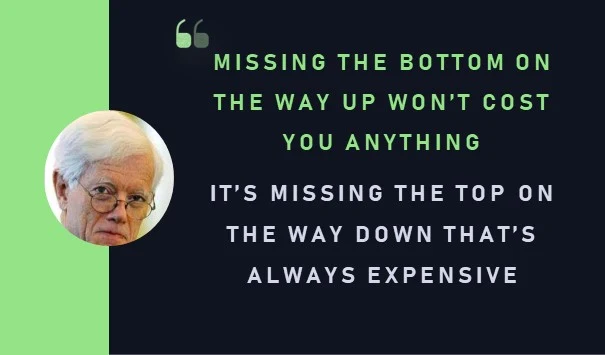
Missing the bottom on the way up won’t cost you anything. It’s missing the top on the way down that’s always expensive.
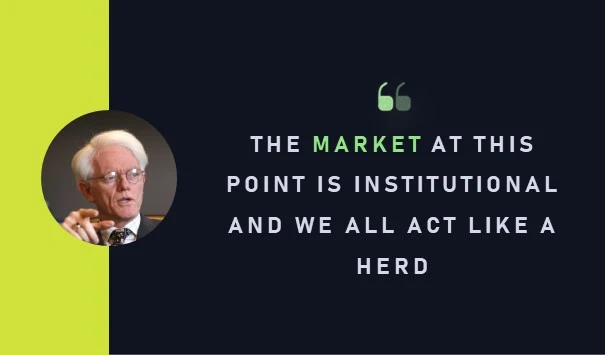
The market at this point is institutional and we all act like a herd.
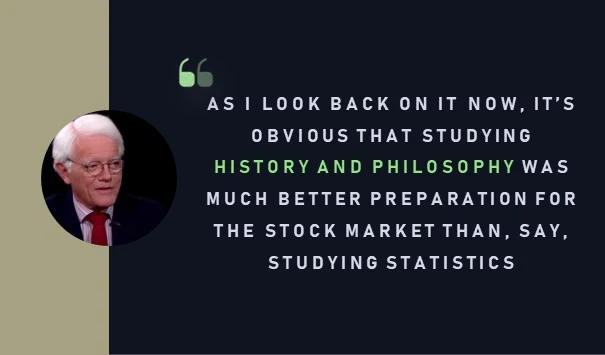
As I look back on it now, it’s obvious that studying history and philosophy was much better preparation for the stock market than, say, studying statistics.

If it’s a choice between investing in a good company in a great industry, or a great company in a lousy industry, I’ll take the great company in the lousy industry any day.

The old Wall Street adage “never invest in anything that eats or needs repairs” may apply to racehorses, but it’s malarkey when it comes to houses.
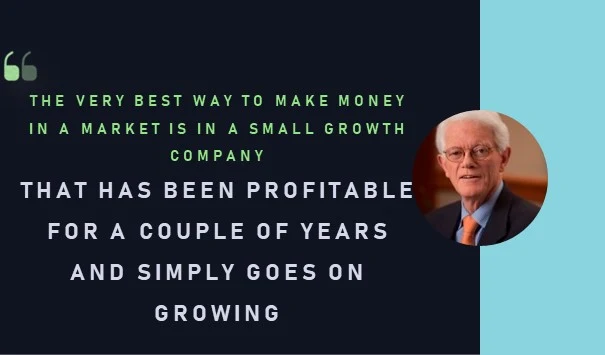
The very best way to make money in a market is in a small growth company that has been profitable for a couple of years and simply goes on growing.
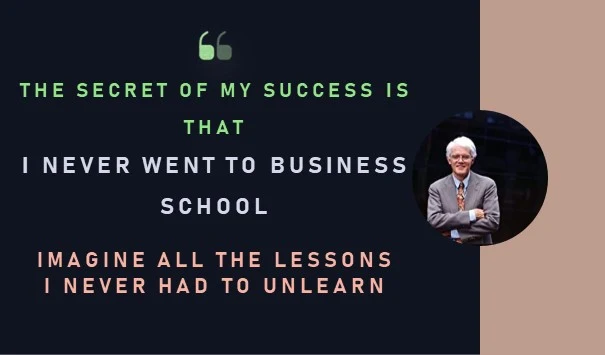
The secret of my success is that I never went to business school. Imagine all the lessons I never had to unlearn.
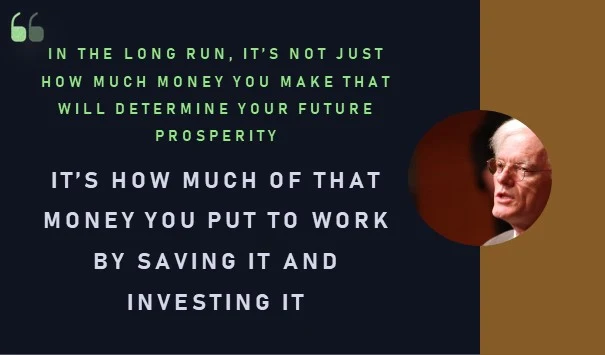
In the long run, it’s not just how much money you make that will determine your future prosperity. It’s how much of that money you put to work by saving it and investing it.
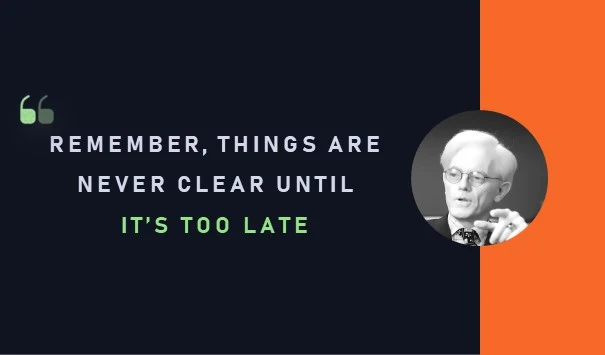
Remember, things are never clear until it’s too late.
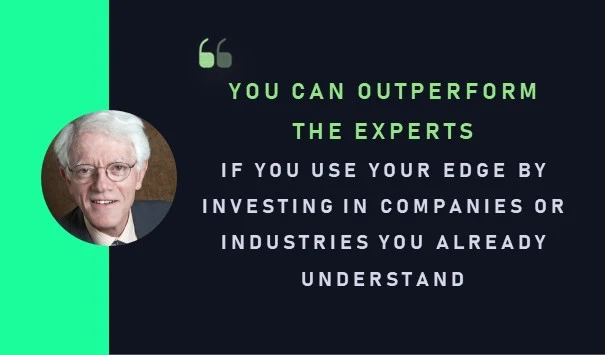
You can outperform the experts if you use your edge by investing in companies or industries you already understand.
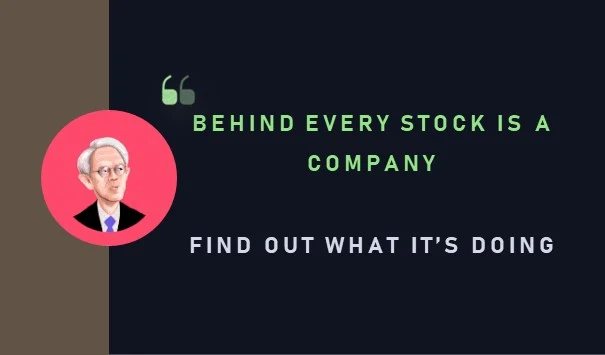
Behind every stock is a company. Find out what it’s doing.

If you don’t study any companies, you have the same success buying stocks as you do in a poker game if you bet without looking at your cards.

Investing in stocks is an art, not a science, and people who’ve been trained to rigidly quantify everything have a big disadvantage.
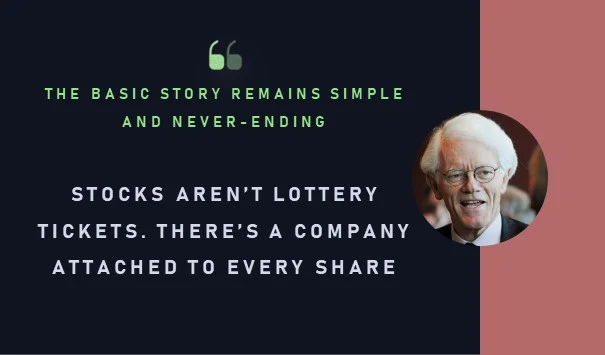
The basic story remains simple and never-ending. Stocks aren’t lottery tickets. There’s a company attached to every share.
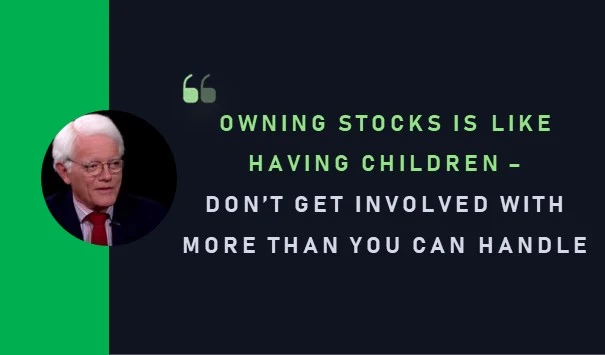
Owning stocks is like having children – don’t get involved with more than you can handle.

The biggest winners are surprises to me, and takeovers are even more surprising. It takes years, not months, to produce big results.
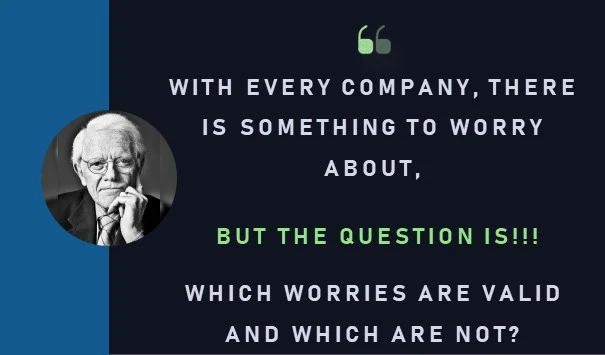
With every company, there is something to worry about, but the question is, which worries are valid and which are not?

I deal in facts, not forecasting the future.

Big companies have small moves, small companies have big moves.
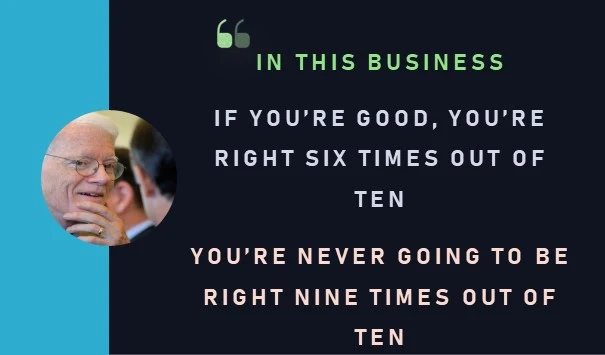
In this business, if you’re good, you’re right six times out of ten. You’re never going to be right nine times out of ten.

The typical big winner in the Lynch portfolio generally takes three to ten years to play out.

You have to keep your priorities straight if you plan to do well in stocks.